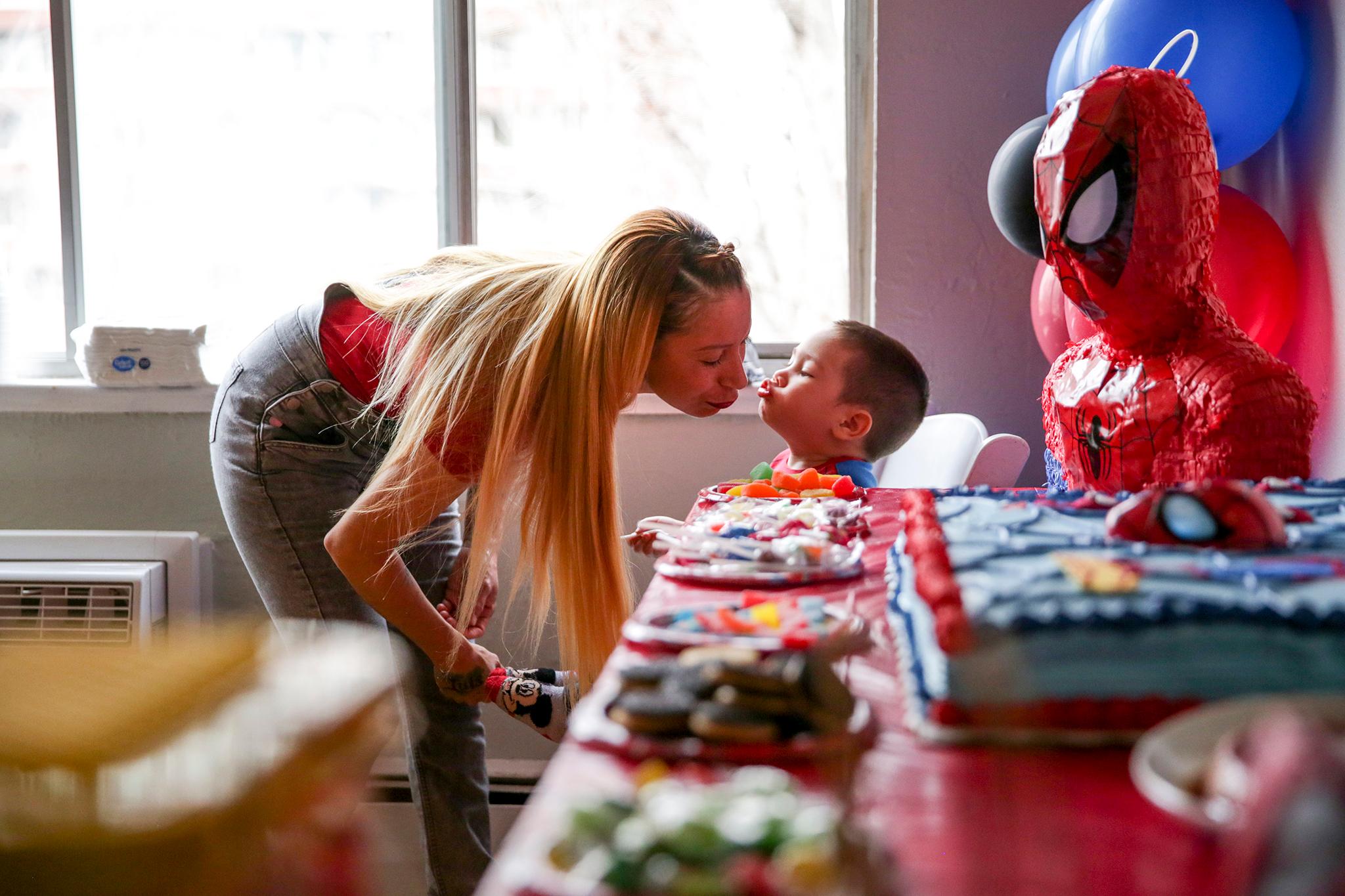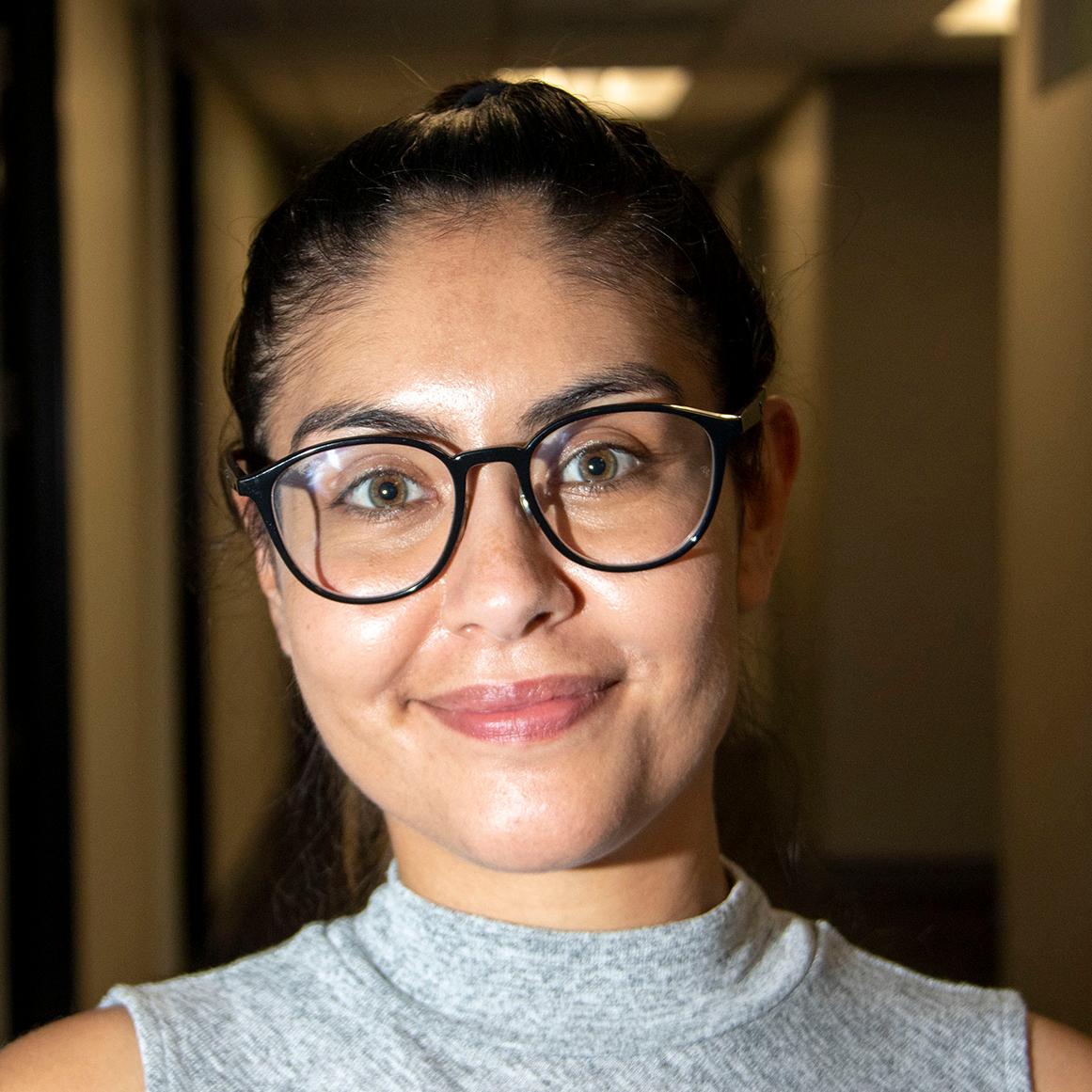The children squealed with excitement when the music stopped, realizing who held the hot potato and had to leave the circle. Above them: a fresh birthday cake, Spider-Man decorations and a Venezuelan flag pinned to the wall.
The occasion was little Luis Jr.'s second birthday, his first party since he left home. For two months, his parents and sisters carried him through dangerous jungles and deserts before they finally reached the U.S. and were detained by border officials. They arrived in Denver late last year and spent weeks living in an emergency shelter in a city rec center. Then, about six months ago, they landed an apartment along Federal Boulevard.
With so much difficulty behind them, this Saturday gathering was a much needed moment of joy.
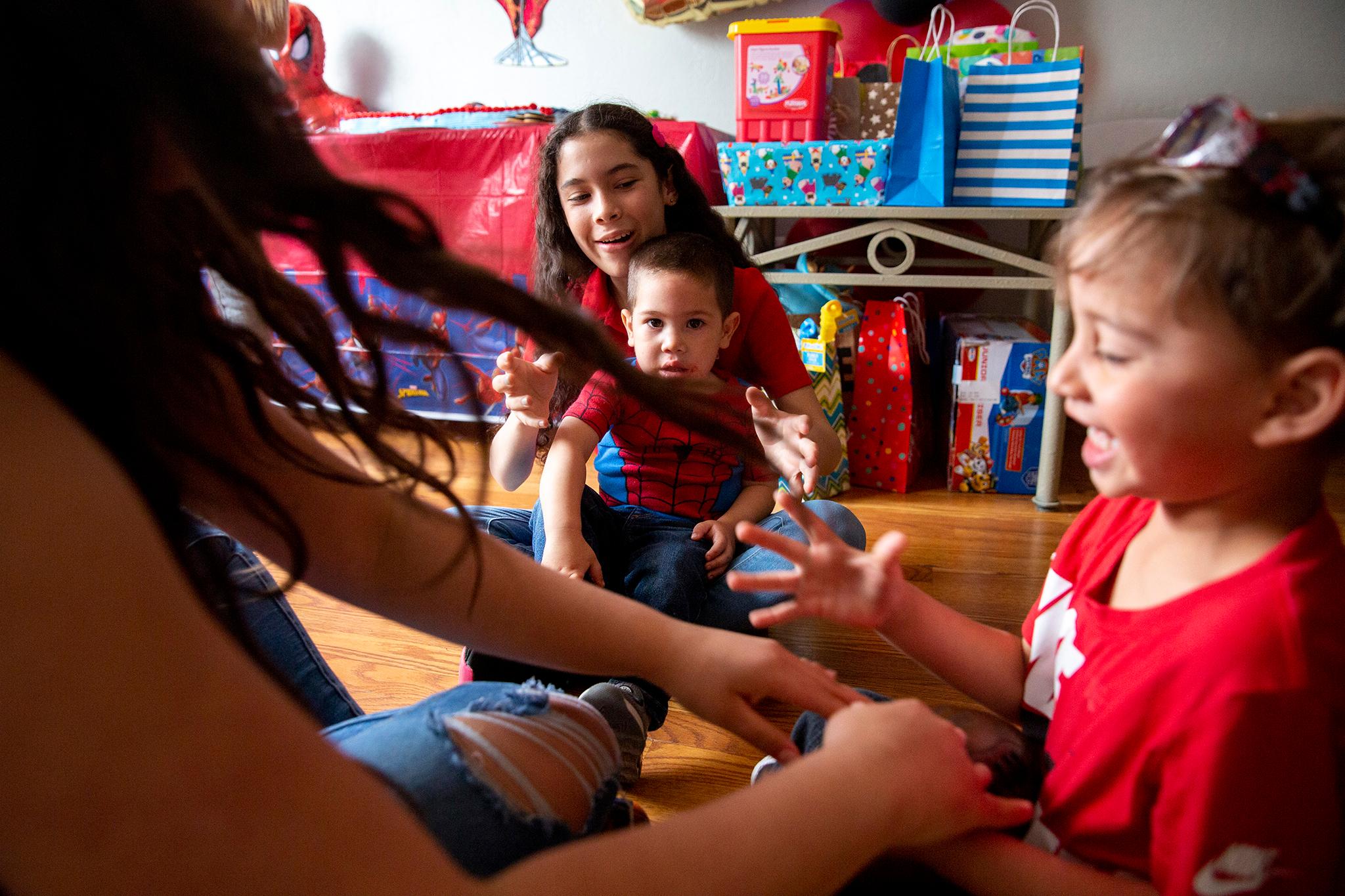
"In the end we achieved our goal. We managed to be here. My daughters are already studying, my baby is in good health and so are we. The goal of looking back and all that sacrifice was worth it," his mother, Karelys Espinoza, said in Spanish as the kids filled her home. "It's the first time we are away from our family, and we are very far. But at the same time, they're proud of us for being the first generation in our entire family to arrive in the U.S."
Many of their guests took similar journeys to Colorado. Some, they met along the way. Others became friends in the city shelter, where they slept on cots on a basketball gym floor. Each of them became part of a new community in Denver as they pursued asylum claims, work, education and spaces to call their own.
But there's no guarantee they'll receive the asylum they've asked for, and a changing landscape of rules means others who follow will likely have a different and more difficult time getting settled. Big federal policy shifts are planned for this week, which has caused more people to enter the country. Denver is already seeing a new increase in arrivals.

The kindness of strangers allowed Espinoza and her family to find their haven in southwest Denver.
"We decided to make the decision to emigrate from Venezuela because we no longer felt safe there," she told us on another Saturday, when her living room was not so full of children.
Her husband, Luis Rodriguez Sr., was a veteran of Venezuela's army, they said. Others like him were being conscripted into extrajudicial groups, colectivos, which were directed to attack protesters and dissidents who spoke out against the country's dictatorship. Rodriguez didn't want a part of it, which meant his family had few options.
"They recalled him, he opposed and we felt threatened," she said. "They came to our home to threaten us, so we moved."
She added that they felt fear of having their children hurt or kidnapped.
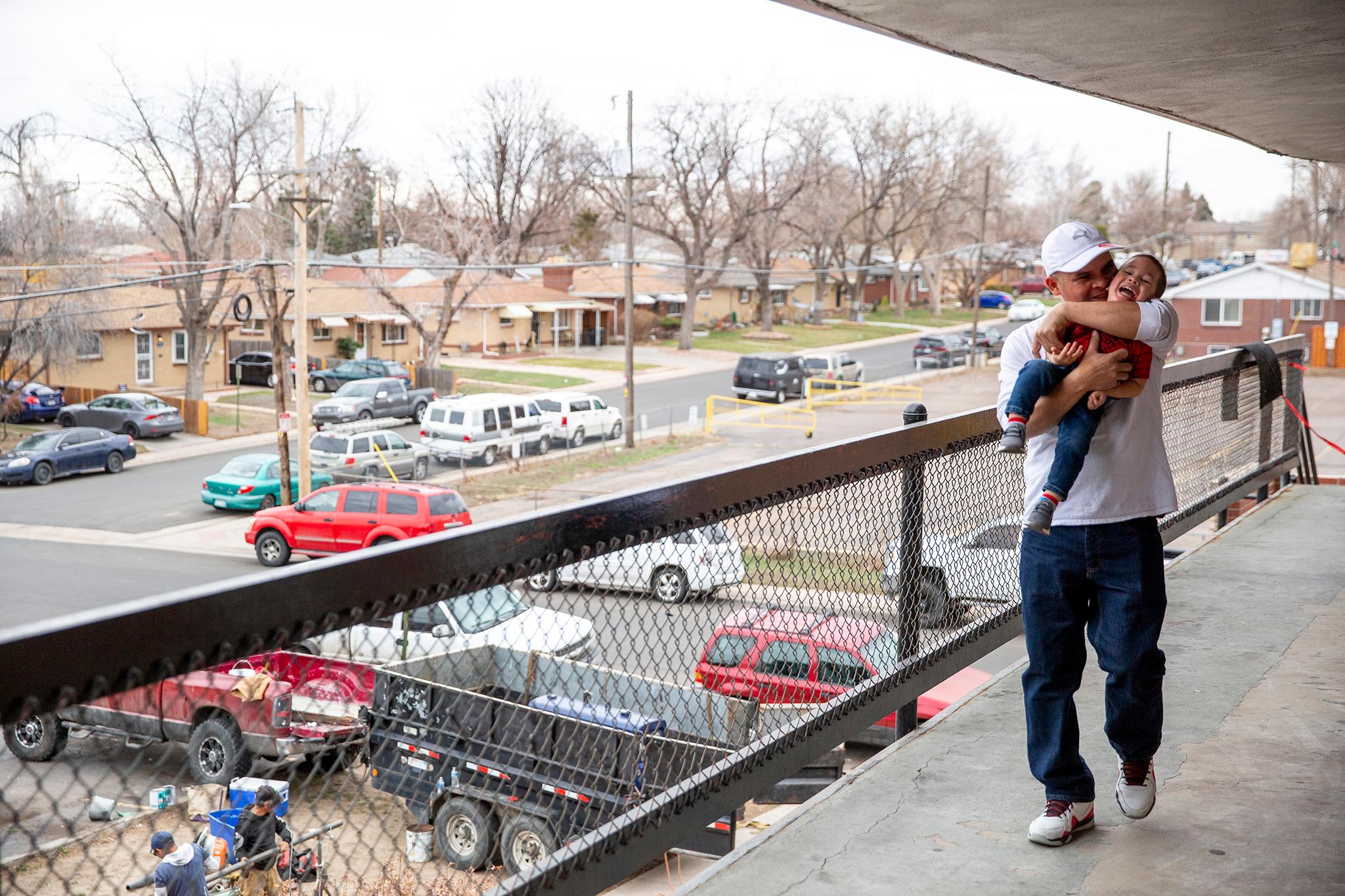
Espinoza said they were always watchful for suspicious vehicles outside of their home.
They worried their daughters, Karelim, 14, and Kaleannis, 11, could be kidnapped as they walked to school. This, she said, made the terrifying journey north worth the risk. They made it by the grace of strangers who gave them clothes and provisions all along the way.
When they finally arrived at Mexico's border with the U.S., they crossed the Rio Grande with scores of others, then turned themselves in to Border Patrol. Espinoza and her family were allowed to continue north, but her sister, widow to Rodriguez's brother, was deported back to Mexico with her children and the majority of the group.
"We have no idea. No idea why they let us through and she was deported. We have no idea," she said. ""There were more than a thousand families and only seven families managed to get through."
Her sister is still in Mexico.
They found open arms in Denver, first at the Central Park rec center, where officials hastily built a shelter to accommodate hundreds of people arriving in the city each day. Migrants have been trickling into Denver for a long time, but their numbers grew suddenly last December, forcing the city to act and keep them from filling regular homeless shelters.
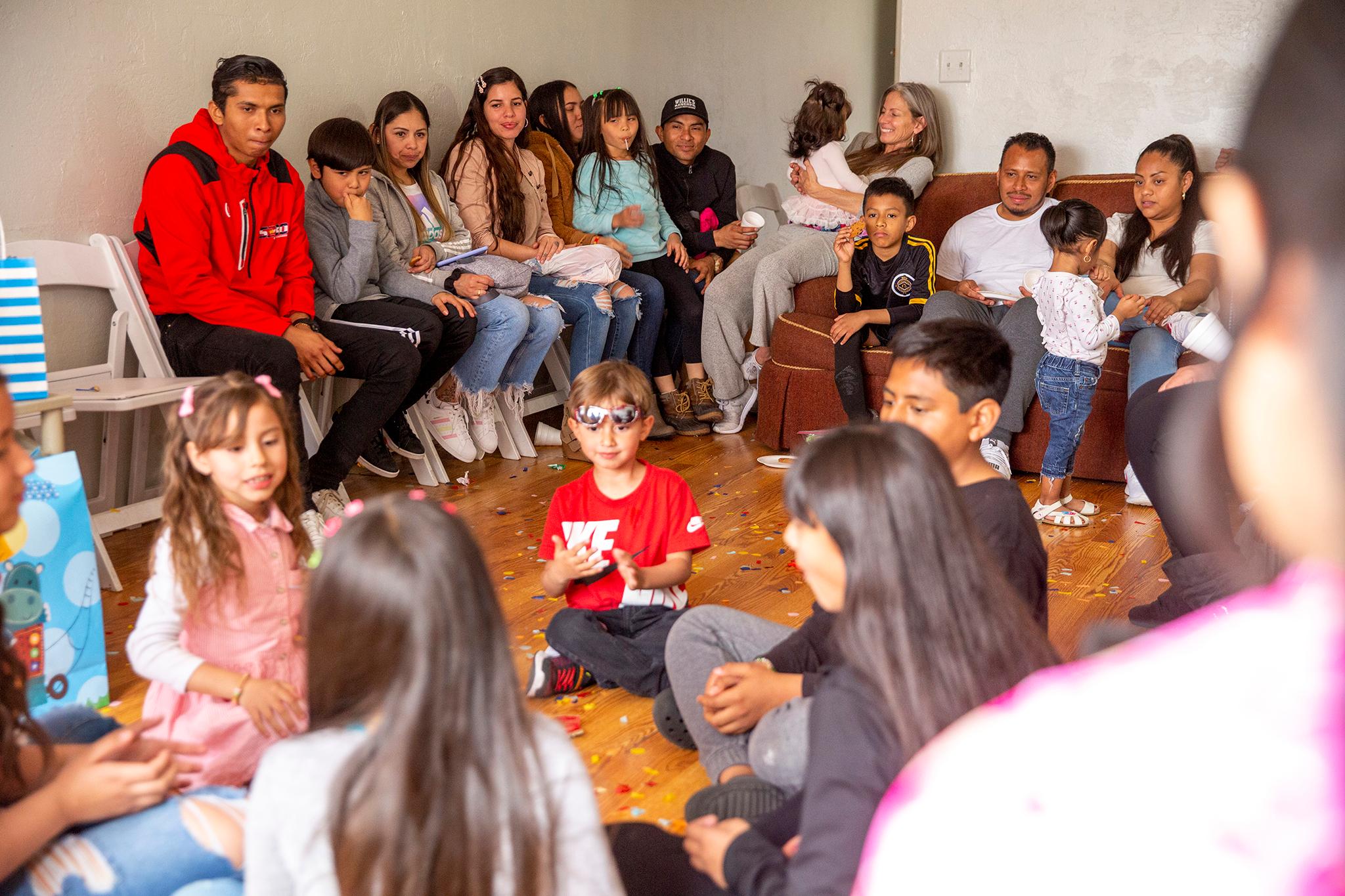
Espinoza said they spent two weeks in the rec center before it was repurposed to serve only single men. Most people staying with them had family or friends elsewhere and left Denver, but a handful stayed. While some went to city-run motels, Espinoza, Rodriguez and their kids were invited to live with a local family as they got on their feet.
Then, about six months ago, the Colorado Housing Asylum Network, or CHAN, found them their place off Federal Boulevard. The organization helped move them in and covered three months of their rent.
"The depression was a lot and the CHAN organization was essential," Espinoza told us. "It was very difficult, but there were many angels along the way who helped us, just like, thank God, they helped us here."
It's taken an army of nonprofits to help people like Espinoza and Rodriguez navigate an expensive city, and a prohibitive immigration system.
Denver's patchwork shelter system has sheltered more than 8,000 people since December, and the city is still housing hundreds of people a day. Jennifer Piper, an advocate with the American Friends Service Committee who's been helping coordinate nonprofits' responses, said her colleagues have resettled some 900 people into the area. As many as 15,000 migrants have settled across the state in the last year, she added, in places like Dillon and Silverthorne.
CHAN founder Denise Chang, told us her small organization has settled 23 families into stable housing over the last year. They've taught people how to catch buses, how to get their kids in school, where to get medical and mental healthcare. A solid home, she said, underpins everything that comes next for the people they serve.
"Asylum seekers generally come to us with a significant amount of trauma, which is why they are asylum seekers. And so putting them in a private home with a family gives them the opportunity to rest and heal before they have to face all of the things that they're going to need to do," she said. "It gives them the emotional support and the stability to be successful."
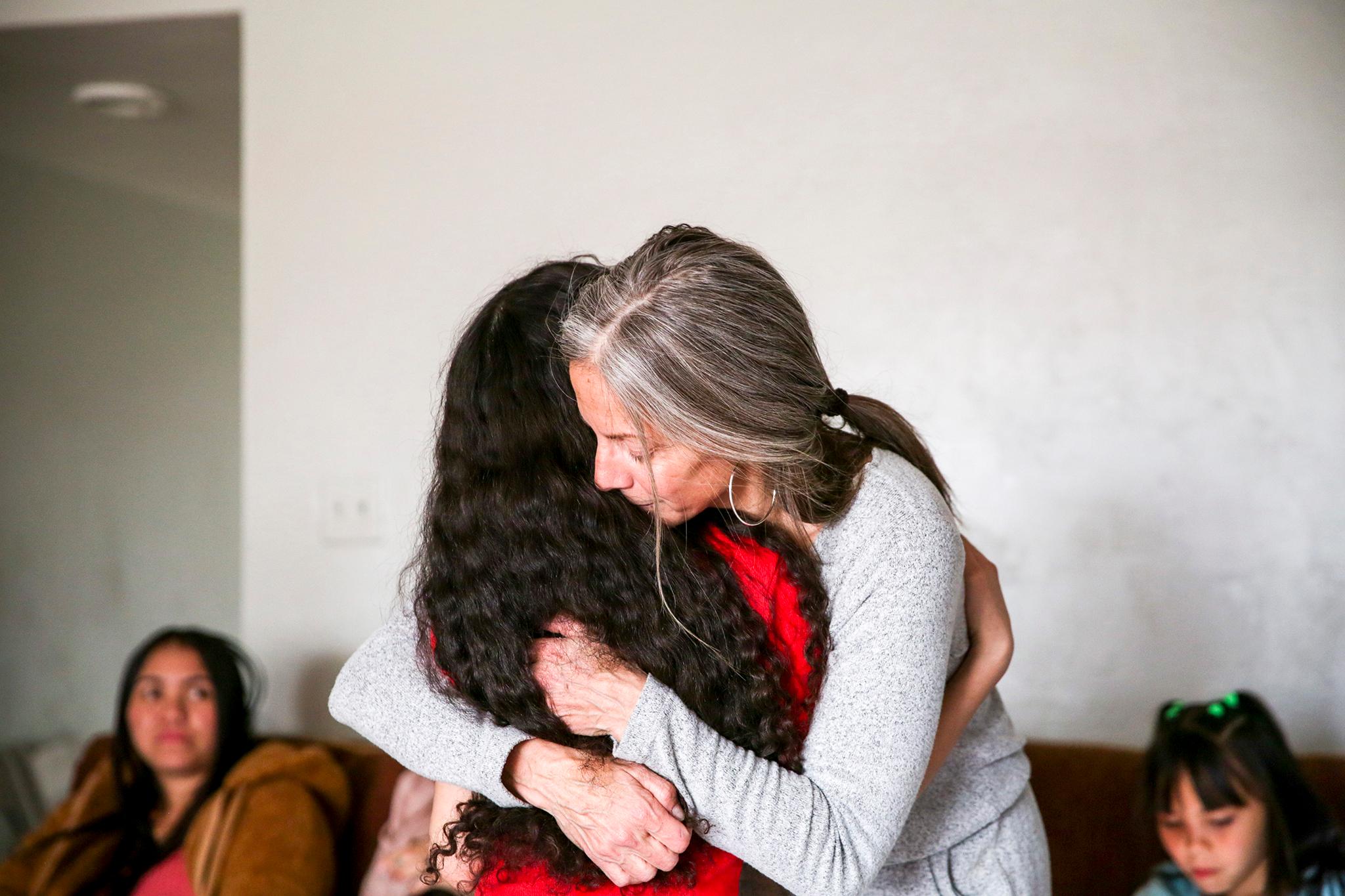
So far, she added, CHAN's aid has done what it was supposed to.
"Basically everybody who stayed with us through that first three months has either transitioned to independence or they will soon," Chang told us. "We are hearing their kids are just fantastically doing well in school. They're finding work, they're connecting with each other, they're helping each other, they're helping the people who are coming after them."
Chang added Denver's high cost of living has been an issue for everyone. Espinoza said her family will likely look for cheaper housing once their lease is up. But finding jobs in the first place can be equally challenging.
People who've applied for asylum in the U.S. are allowed to work while they wait for rulings in their cases, which can take years, but they typically need to wait six months for work authorization to come through. Meanwhile, they need some way to cover rent, groceries, clothes and the occasional birthday party.
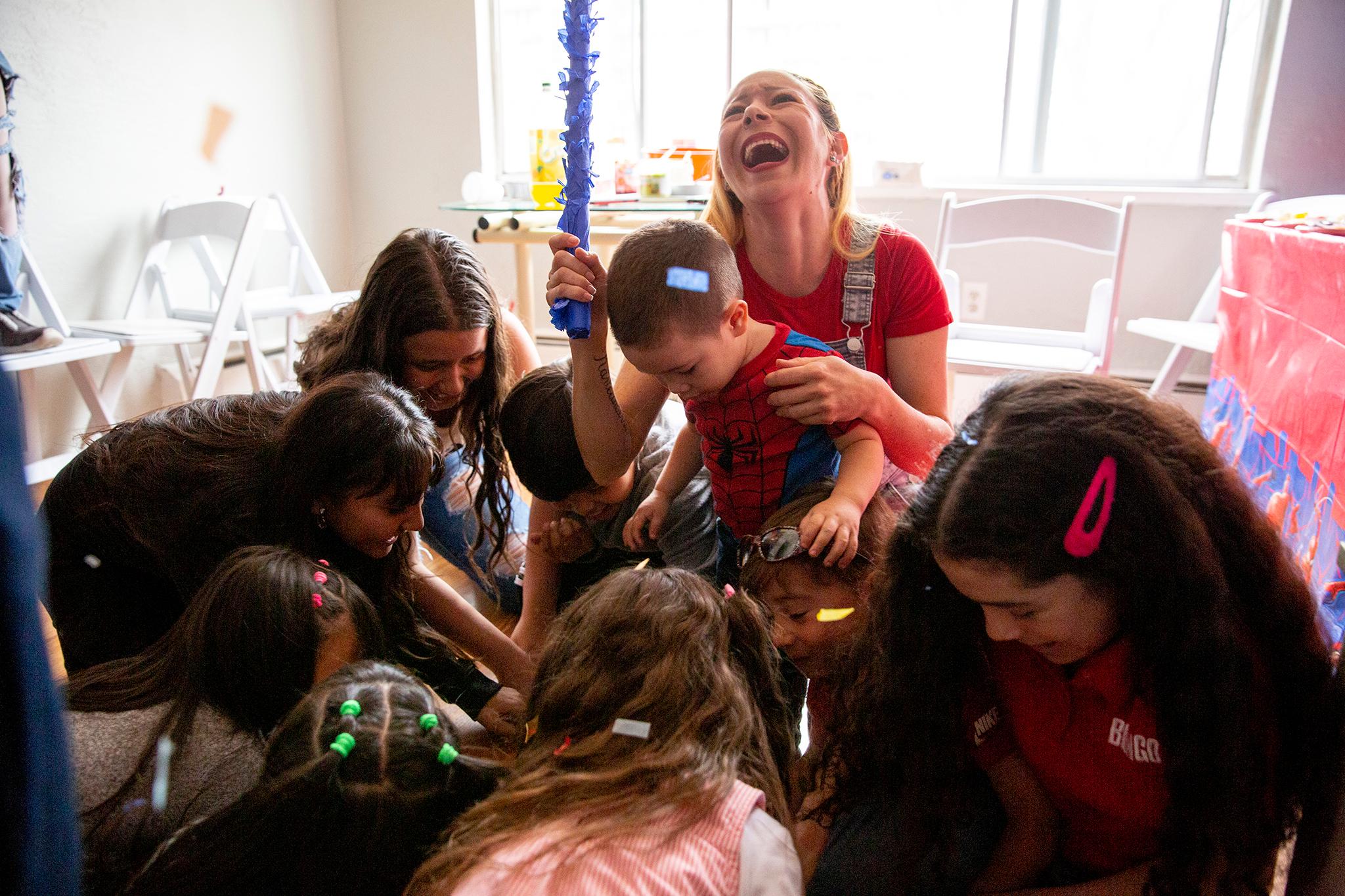
Rodriguez has been working construction; he's a trained welder. Espinoza, who worked in hotels back home, said she's working a few nights a week at a nearby restaurant. Once she has papers, her boss told her, she can pick up more shifts. For now, everything is off the books.
Juan Franco Orellana, an employment navigator with the nonprofit Servicios De La Raza, said that's how most new arrivals are paying their bills. He's not allowed to point clients to an employer that's willing to pay someone under the table, but he does tell clients to tap their networks and see who's hiring.

"It's really been a lot of the migrant community that was already present here in Colorado that's been opening up pathways," he said. "There's a lot of construction jobs that are going up, and there's also demand for restaurant jobs, cleaning jobs. It's sad to say, but it's a lot of the menial labor jobs that a lot of citizens or people that can take those jobs simply don't want to."
The vexing part, he added, is plenty of his newly arrived clients have college degrees and left careers behind. They've taken what they could get to make ends meet.
Getting government aid has gotten trickier, and many people who show up needing help will have a harder time finding it.
Last month, Mayor Hancock announced Denver would stop sheltering migrants arriving in the city who had no prior contact with federal officials. Until recently, rec centers and motels were serving people with all kinds of backstories. Some, like Espinoza and Rodriguez, encountered Border Patrol and somehow made it through; others crossed without detection.
Hancock's policy change stemmed from a federal directive, which said Washington would not reimburse cities for services provided to people who haven't checked in with officials. It's a big deal, since the city's been spending about $800,000 a week on its shelter program.
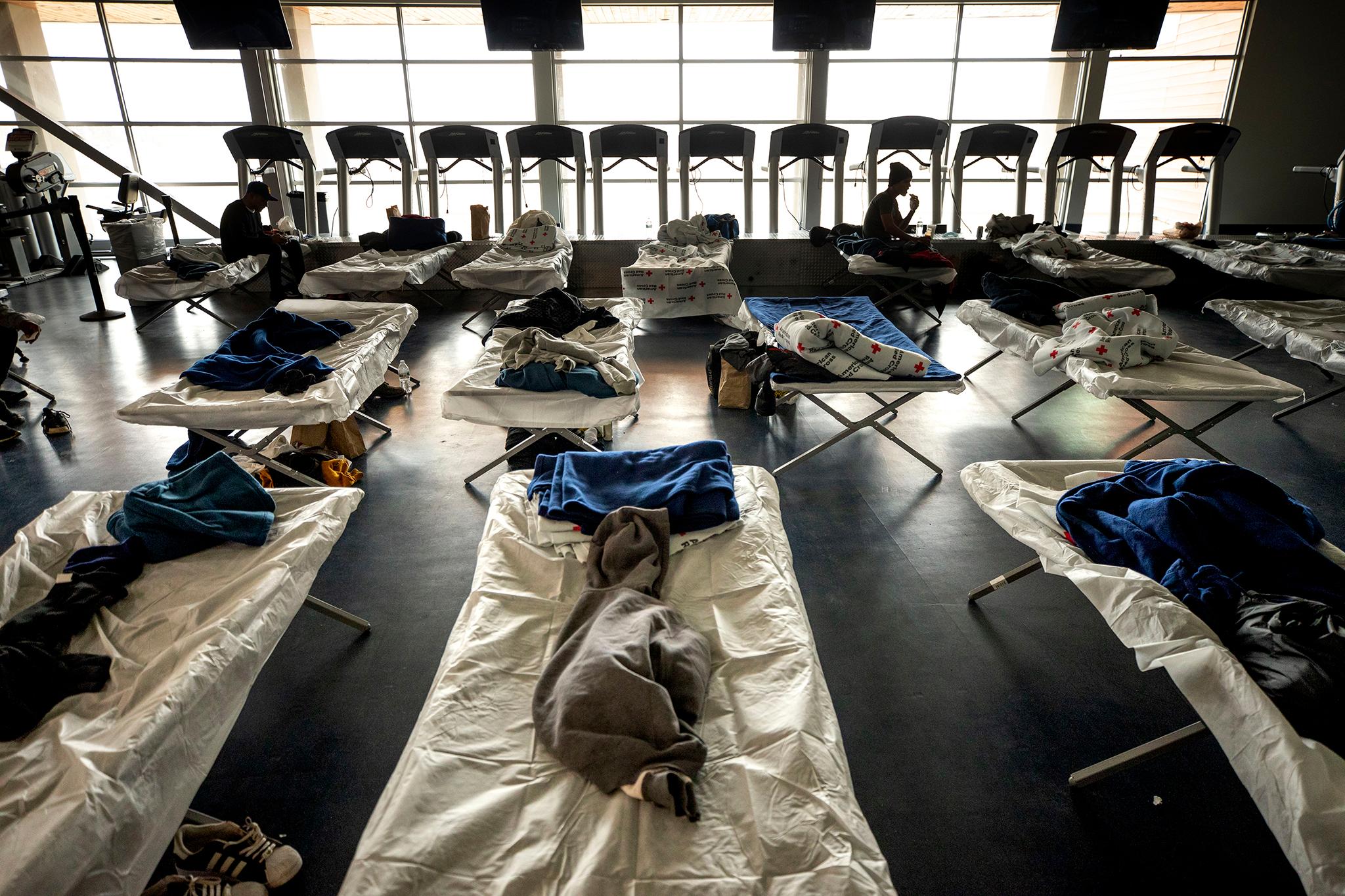
The new rules reflect the realities of other federal policies: it's become harder to enter the country and declare asylum the "right way" in the last few years, and the rules are changing soon.
In 2020, President Trump invoked Title 42, a public health provision that allows the government to stop or slow migration during emergencies like pandemics. Though U.S. law has allowed people to enter the nation and then apply for asylum since World War II, Title 42 allowed the government to reject people without any due process. Many who tried to do things the legal way were returned to Mexico without a chance to make their cases, like Espinoza's sister. The policy has contributed to large populations of migrants waiting for a chance to cross the border from places like Juarez and Matamoros.
Title 42 is set to expire on Thursday. For months, officials and observers at all levels have worried people would cross the border en masse when the rule times out, further stressing cities like Denver. President Biden announced new rules to replace it, which punishes people for crossing U.S. borders before they ask for asylum. The new rules also require people to apply for asylum in countries that pass through on their way to the U.S. border, before they try here.
Fearing they may get swept up under these new penalties, many people who've been waiting in Mexico have begun to cross into the country before they go into effect. Denver has seen an uptick in arrivals as a result.
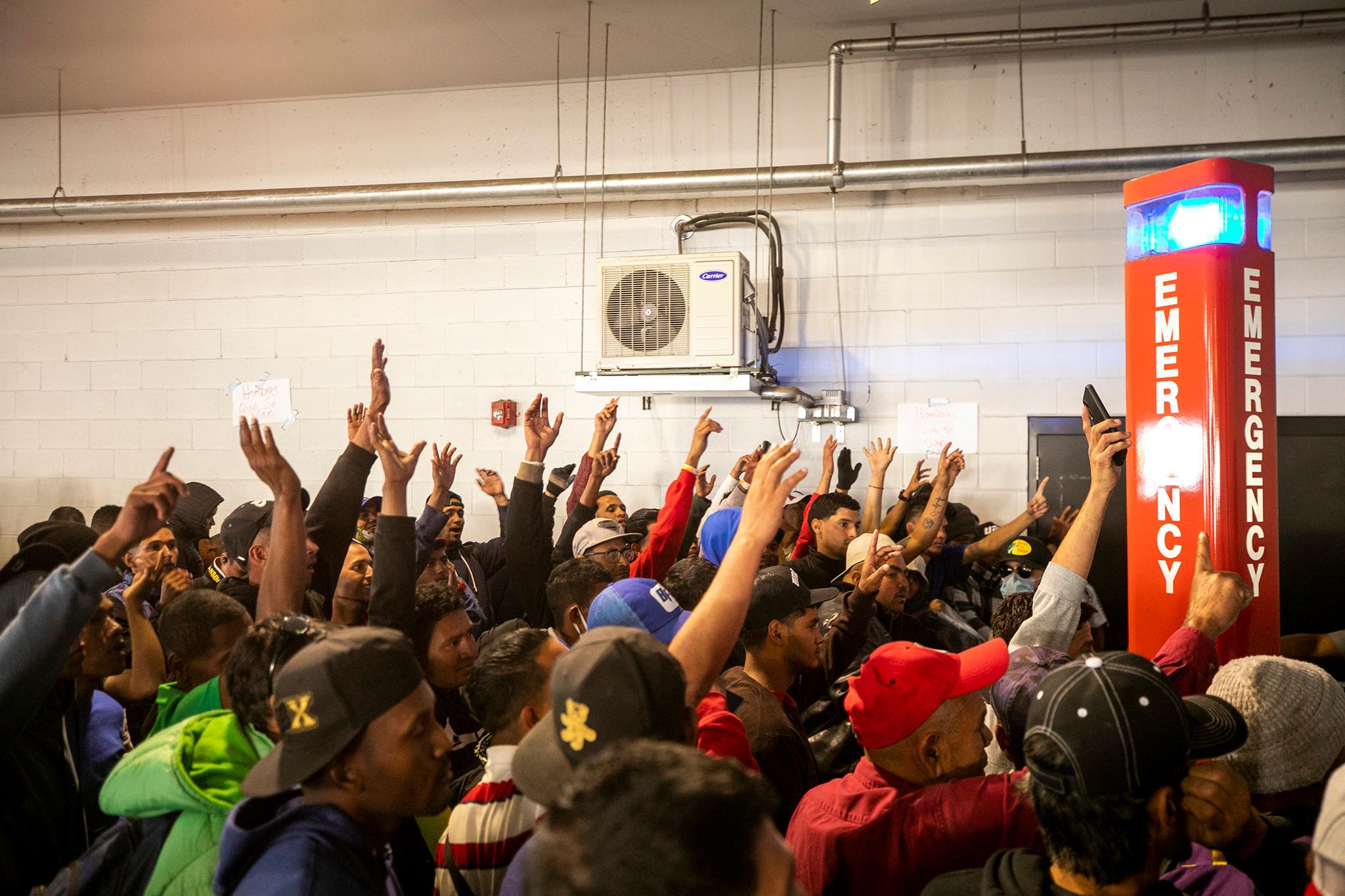
Advocates like Piper say Biden's moves are gross rollbacks of longstanding policy, and that both Democrats and Republicans in Washington have failed to put forth any real fixes.
"The Biden administration's proposed new rule is an asylum ban. It's every bit as much an asylum ban as what Trump proposed," she told us. "It assumes that you have safety in another country and that you have the luxury of time to wait for an answer."
Between the restrictive new asylum rules and the new policies that discourage cities like Denver from helping people without documentation, it's likely that families trying to follow in Espinoza and Rodriguez's footsteps will have fewer resources to make a stable transition. One reason, University of Denver visiting assistant professor Elizabeth Jordan told us, is that people will just come in secret if they can't enter any other way.
"It's unrealistic to expect people will just stop coming," she told us. "Venezuela is a failed state. People will have to continue fleeing to keep their families alive."
It's worth noting that people from all over the world, from places like Africa and Asia, regularly show up at the southern border alongside people escaping Central and South American countries.
Advocates are turning to private money as the city begs for more federal assistance.
Since cities can no longer use federal dollars to help people without documentation, advocates are drumming up cash elsewhere. The Rose Community Foundation, for example, has given more than $400,000 to local groups like CHAN to help them continue their work. A spokesperson for the foundation said they're re-upping asks for people to donate to their cause.
Advocates like Piper have demanded the city fund separate services for people without documentation, to avoid filling homeless shelters with people who've just arrived.
Mayor Hancock and Gov. Jared Polis, for their part, sent a joint letter to U.S. Department of Homeland Security Secretary Alejandro Mayorkas on Monday, asking for more resources to address the "ocean of human needs" washing over the state.
"We remain deeply concerned that our jurisdictions will not be fairly reimbursed for shouldering this unprecedented federal responsibility," they wrote. "The funding we received is minuscule compared to the critical needs we faced and are facing on the ground."
This all means there's growing demand for a dwindling resource pool.
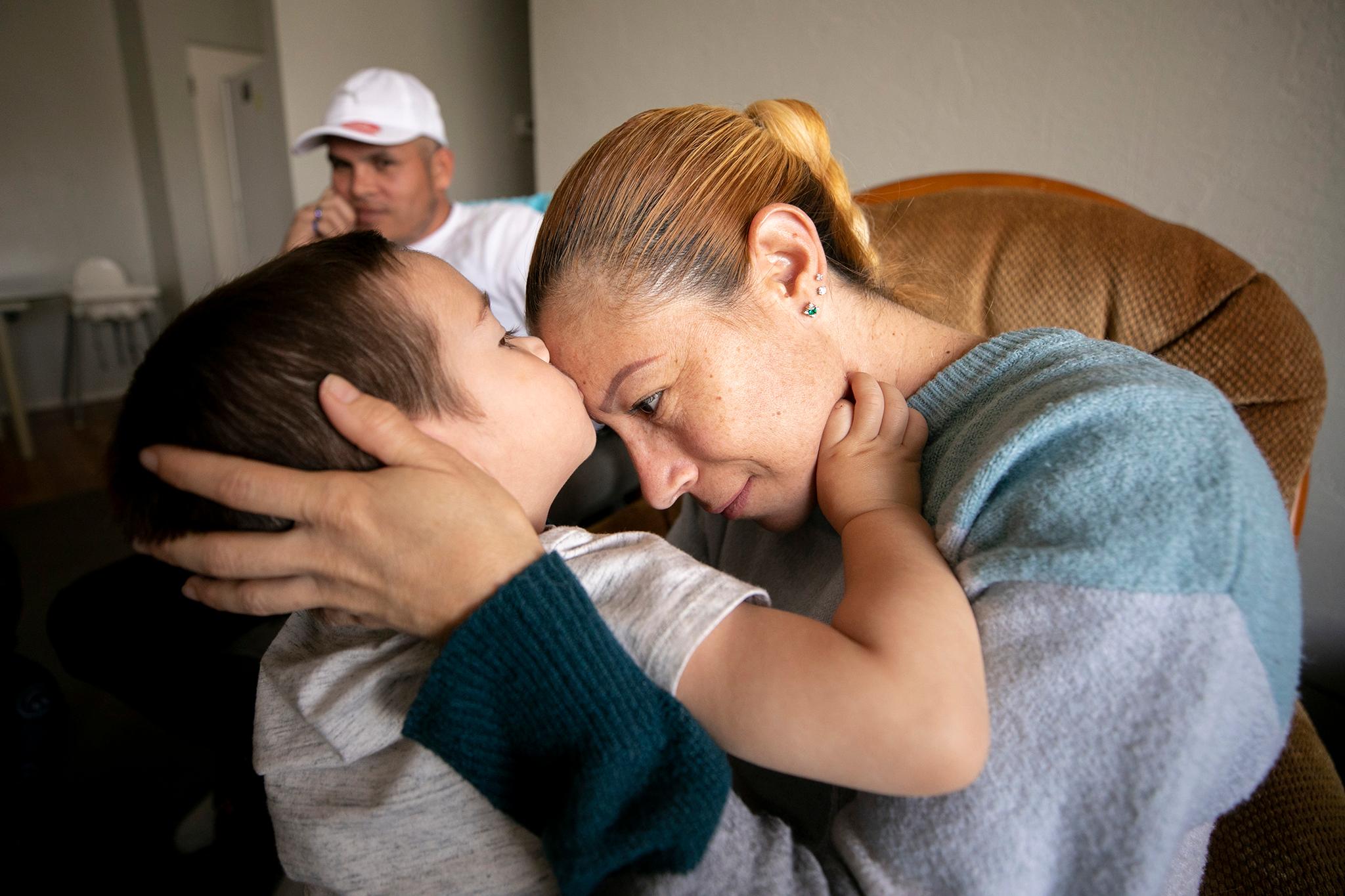
People like Espinoza and Rodriguez were lucky. They and their small community here got in before things changed, and before funding threatened the supports they relied on at first.
For now, Espinoza said her family is still getting used to their new situation. While they were delighted to see snow for the first time, they struggled with our cold winter climate. Though they're still waiting to work legally and save up for the things they need to live here, they have each other.
They don't have a car, so they can't travel very far and explore their new city, Espinoza said, adding that their joy right now comes in the form of walking to a park with their kids or going to the grocery store.
"At least this in this moment, we're satisfied with being alive and healthy, and we can at least go for a walk and we can go out and play," she said.
And as they stake out their independence and pursue permanent residency here, they hope they'll have the resources to give back, and help others who brave treacherous journeys and opaque systems to find new lives in this city.
"We want to help immigrants who have also gone through the same situation as us. We want to collaborate with them, we want to help, we want to guide," Espinoza said, as Luis Jr. bounced on his father's lap. "We want our story to be of help and understanding to so many people who come here."
